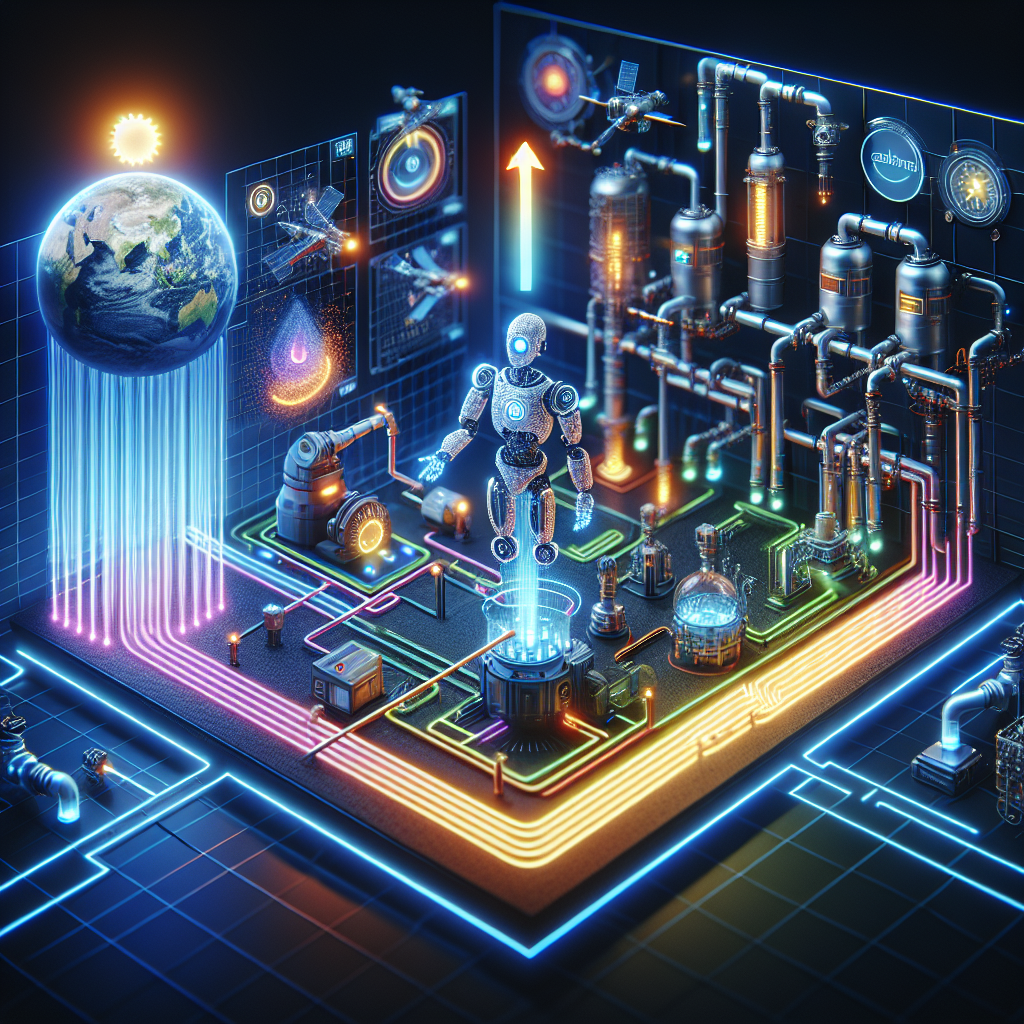Geothermal energy is a renewable and sustainable source of energy that is derived from the heat within the Earth’s core. This energy can be harnessed through geothermal power plants and used to generate electricity and heat buildings. However, like any energy source, geothermal energy systems can benefit from advancements in technology to improve their efficiency and performance. Artificial intelligence (AI) has emerged as a powerful tool in optimizing geothermal energy systems and maximizing their potential. In this article, we will explore the advantages of AI in improving the efficiency of geothermal energy systems.
1. Predictive Maintenance
One of the key advantages of AI in geothermal energy systems is its ability to predict maintenance needs and prevent costly breakdowns. AI algorithms can analyze data collected from sensors and equipment to detect patterns and anomalies that may indicate a potential issue. By monitoring the health of geothermal systems in real-time, AI can help operators identify problems early on and take proactive measures to prevent downtime.
2. Optimization of Energy Production
AI can also be used to optimize the production of geothermal energy by adjusting operating parameters in real-time. By analyzing data on temperature, pressure, and flow rates, AI algorithms can determine the most efficient way to extract heat from the Earth’s core and generate electricity. This can help geothermal power plants maximize their energy output and increase their overall efficiency.
3. Enhanced Control Systems
AI can improve the control systems of geothermal energy systems by providing real-time feedback and adjusting settings accordingly. By continuously monitoring the performance of equipment and adjusting operating parameters, AI can ensure that geothermal systems are operating at peak efficiency. This can lead to significant cost savings and improved performance over time.
4. Remote Monitoring and Diagnostics
AI can enable remote monitoring and diagnostics of geothermal energy systems, allowing operators to access real-time data and insights from anywhere in the world. This can be especially useful for geothermal power plants located in remote or hard-to-reach areas, where on-site maintenance may be challenging. By leveraging AI-powered monitoring systems, operators can detect issues early on and take corrective action before they escalate.
5. Increased Safety
AI can also improve the safety of geothermal energy systems by identifying potential hazards and risks before they pose a threat to workers or the environment. By analyzing data on temperature, pressure, and other variables, AI algorithms can predict dangerous conditions and alert operators to take preventive measures. This can help reduce the likelihood of accidents and ensure that geothermal systems operate safely and efficiently.
6. Cost Savings
By optimizing the performance of geothermal energy systems, AI can help reduce operating costs and increase the overall profitability of geothermal power plants. By minimizing downtime, optimizing energy production, and improving efficiency, AI can help operators save money on maintenance, fuel, and other operating expenses. This can make geothermal energy more competitive with other sources of energy and help drive its widespread adoption.
FAQs:
Q: How can AI help improve the efficiency of geothermal energy systems?
A: AI can improve the efficiency of geothermal energy systems by predicting maintenance needs, optimizing energy production, enhancing control systems, enabling remote monitoring and diagnostics, increasing safety, and reducing operating costs.
Q: What are some examples of AI applications in geothermal energy systems?
A: Some examples of AI applications in geothermal energy systems include predictive maintenance algorithms, optimization of energy production, real-time control systems, remote monitoring and diagnostics platforms, safety monitoring tools, and cost-saving measures.
Q: What are the benefits of using AI in geothermal energy systems?
A: The benefits of using AI in geothermal energy systems include improved efficiency, increased energy production, enhanced safety, reduced maintenance costs, remote monitoring capabilities, and overall cost savings.
In conclusion, AI has the potential to revolutionize the way geothermal energy systems are operated and maintained. By leveraging AI algorithms and data analytics, operators can optimize the performance of geothermal power plants, increase energy production, reduce operating costs, and ensure the safety of workers and the environment. As the demand for renewable energy continues to grow, AI will play a crucial role in maximizing the efficiency and sustainability of geothermal energy systems.

